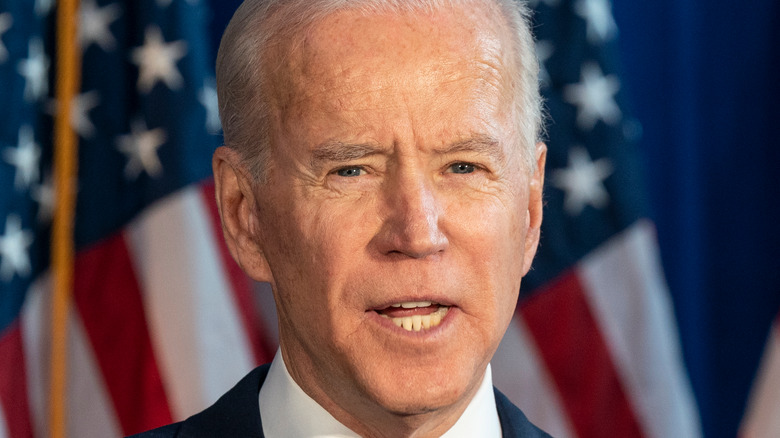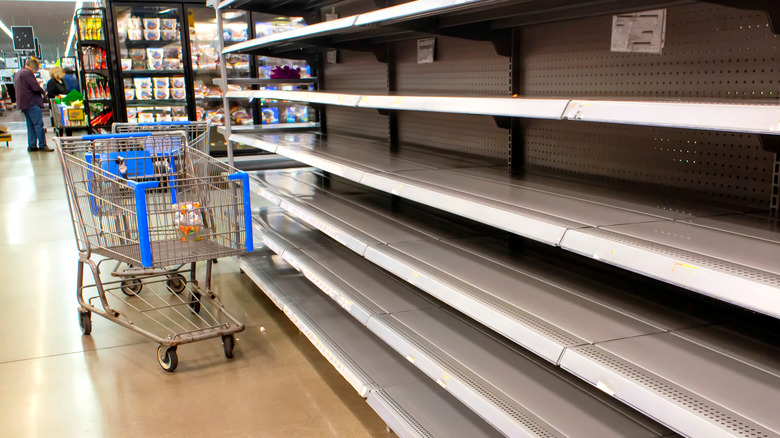President Biden's Update On Food Inflation May Not Be What You Expect
Recent months have seen food prices skyrocket as inflation soars to record highs as expensive grain futures affect necessities from bread to cereal. Combined with export bans on staple cooking ingredients like palm oil and sunflower oil, exorbitant gasoline prices, and shortages of fertilizer, U.S. consumers are feeling the heat in a big way. Not only is this food insecurity hurting wallets, new research shows that it's also dramatically affecting the mental health of more vulnerable communities.
On June 1, President Biden held a virtual meeting via The White House to address the increased infant formula production plan "Operation Fly Formula" and comment on its progress. Operation Fly Formula launched in response to the massive baby formula shortage that rocked parents of young children in recent months. The Biden administration invoked the Defense Production Act of 1950 to restock the dangerously empty formula aisle shelves as quickly as possible. But, surfacing information about Abbott Laboratories' unsafe food manufacturing practices and a jarring whistleblower testimony have raised speculation about whether corporate greed was to blame for the epidemic, which has been tied to the deaths of several infants.
Now, as the Russia-Ukraine conflict progresses, U.S. consumers have more questions than answers about the unfolding global food crisis and are looking to the President for a plan of action.
Keep those wallets out
During the meeting, one interviewer asked President Biden how he plans to curtail rising gas prices, which have reached a national average of $4.71, via AAA. The President's response was discouraging, at best. "There's a lot going on right now, but the idea we're going to be able to, you know, click a switch, bring down the cost of gasoline, is not likely in the near term, not is it with regard to food," he said, via The White House. President Biden mentioned a plan to reopen access to an unidentified harbor in order to distribute the 10s of thousands of tons of grain that have been blocked by import and export restrictions and trade bans due to the Russia-Ukraine conflict.
As far as remedying food inflation is concerned, the answer is even more harrowing. "The bottom line is the bottom line: How much it costs you to maintain your household and your standard of living. And there's not -– we can't take immediate action, that I'm aware of yet, to figure out how we bring down the price of gasoline back to three dollars a gallon. And we can't do that immediately with regard to food prices either," he commented.
If worried U.S. consumers want answers, it seems like they will have to keep looking.

